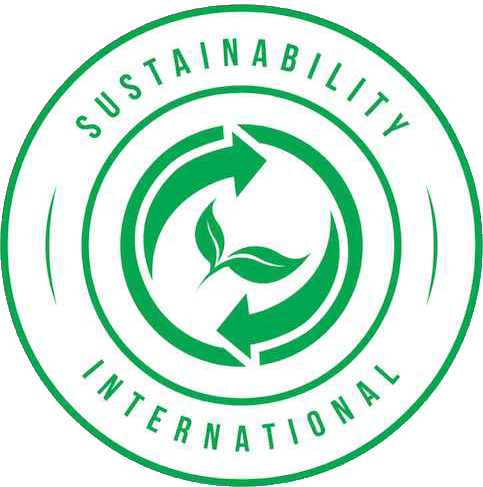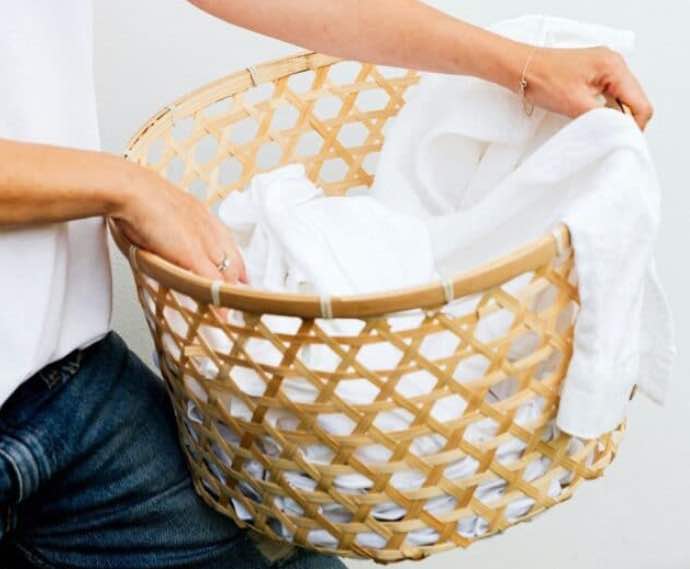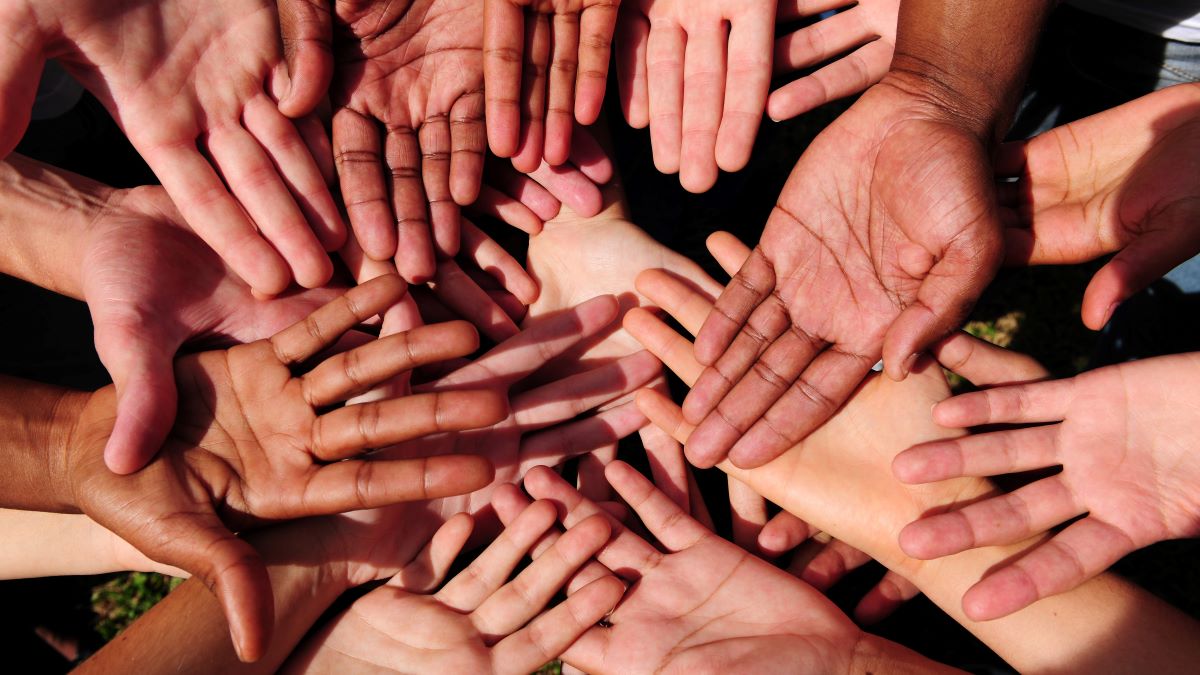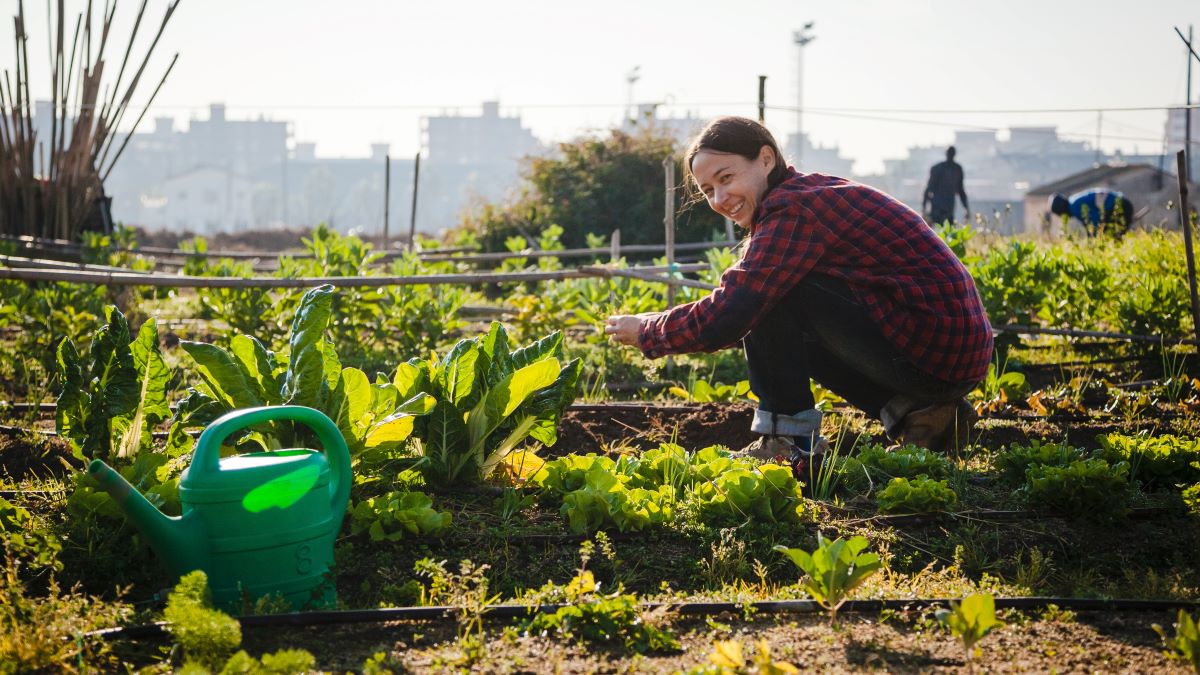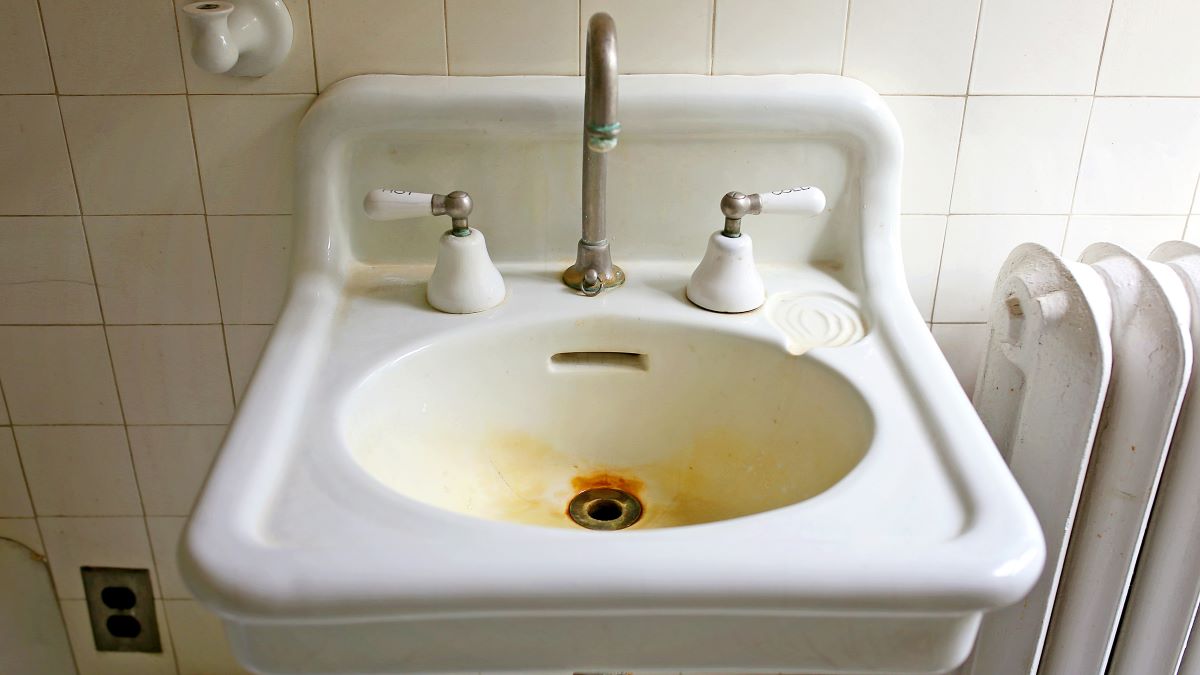Not all eco-friendly laundry detergent is made equal. If you want to pick a good one that will actually clean your clothes, you’ve come to the right place.
In my experience a lot of eco-friendly laundry detergents are actually just laundry soap. And trust me, that can end up ruining your clothes. For more information see my blog post Why You Should NEVER Make Homemade Laundry Detergent.
Some of the links below may be affiliate links. For more information please see my disclosure policy.

On the flip side, you also have to be careful with conventional detergents. Many contain questionable ingredients that are harmful to human health and the environment.
A lot of traditional detergents contain phosphates which build up in waterways and lead to eutrophication – big algae blooms that can deplete the water of oxygen and kill off fish.
Thankfully, there are eco-friendly laundry detergents out there with both safe ingredients and mindful packaging that will actually clean your clothes!
how to have eco-friendly laundry routine:
Before we get into laundry detergent, it’s important to chat about the overall idea of creating a more eco-friendly laundry routine. We all know that fast fashion is one of the top polluters, but did you know that 39% of a garment’s environmental impact comes from washing, drying, and consumer care?
One of the best ways to have a positive environmental impact is to take better care of the clothing we own and that starts with wearing, repairing, and washing less.
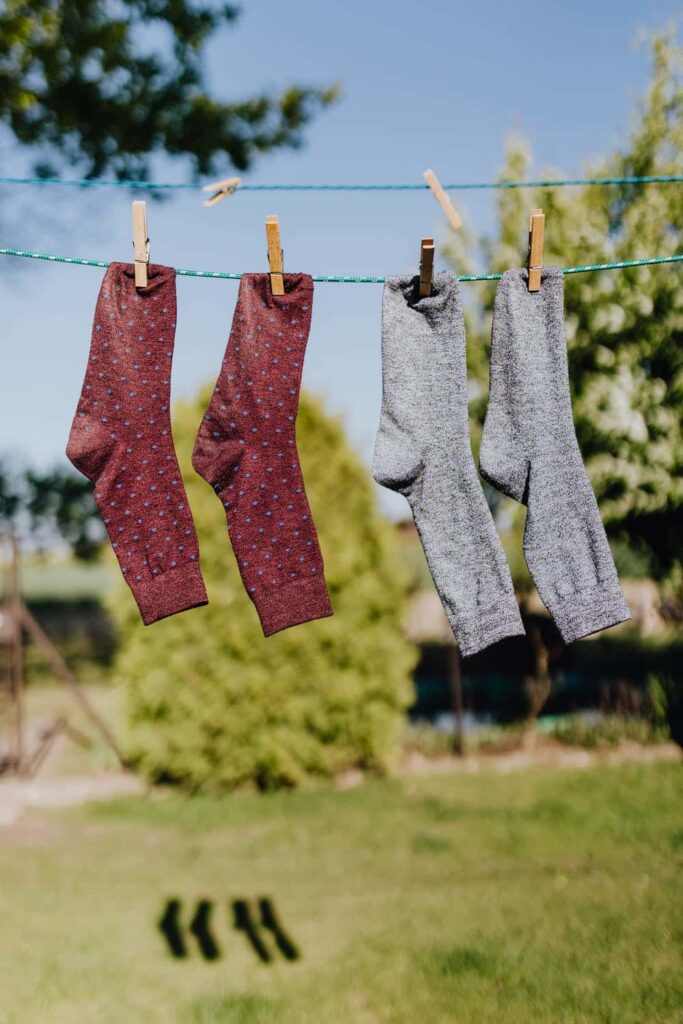
wash less:
Only wash your clothes only when they’re actually dirty – not after every wear. The average American runs anywhere from four to five loads a week, and that’s a lot of water to waste.
I always recommend washing socks, underwear, and really sweaty workout gear after one day of wearing, but everything else is subject to a smell test.
If my shirt or dress doesn’t stink I simply air it out over night and then hang it up. Airing out clothes allows oxygen to surround the item which keeps fabric fresh and ready to be put back in a drawer or closet.
It’s also important to note fabric. Synthetic fabrics hold on to scents longer and have to be washed more frequently unlike natural fibers like wool, merino, and linen which are naturally anitmicrobrial and antibacterial.
Most of my wardrobe is made up of natural fibers so I don’t have to worry about microplastics in the wash, and so I don’t have to do laundry as often. Talk about a win-win!
So, whether you’re looking for a new piece at a thrift store or a sustainable fashion brand – check out fabric composition!
hang your clothes to dry:
The energy use of a dryer can vary between 1800 watts to 5000 watts, but a typical dryer uses about 3000 wats. By leaving your clothes out to dry not only are you saving all that energy from being wasted – you’re extending the life of your clothes!
Dryers are really harsh on clothing. Tumble drying can change the texture of your clothing, cause it to shrink, fade, and even lose strength.
Researchers washed and dried cotton towels for 20 cycles, and they lost 50% of their strength! After only 20 cycles, the fabric became twice as easy to tear! (source)
Moral of the story is by washing less and air drying you can easily extend the life of your clothing!
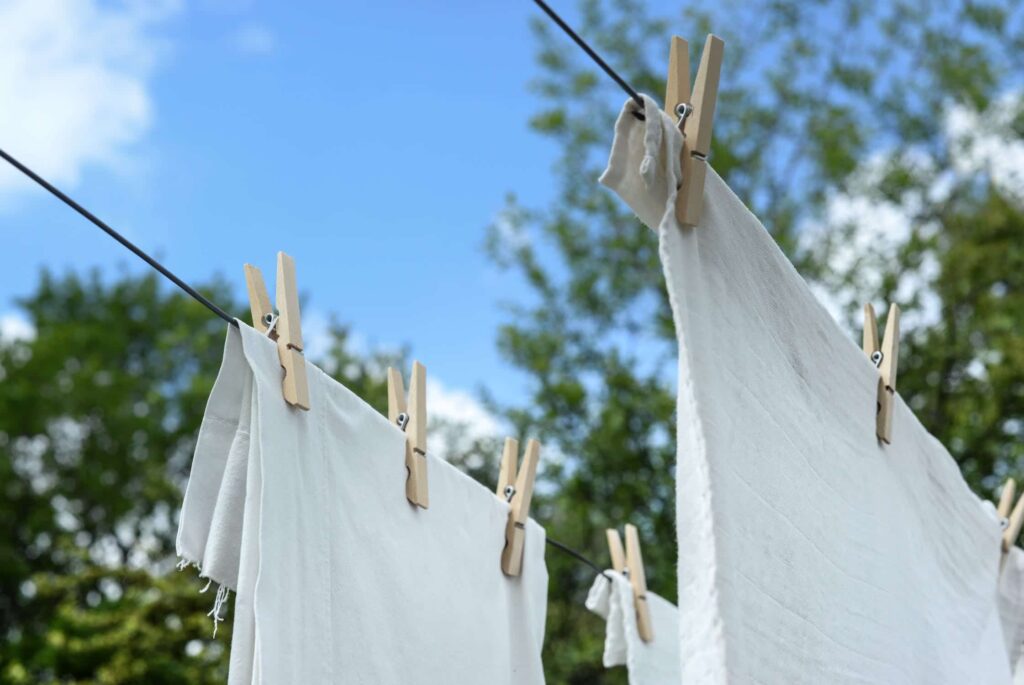
wash in cold water:
Most laundry detergents have specifically been formulated for washing in cold which is a great way to reduce your energy cost. It’s estimated 75 to 90 percent of all the energy your washer uses goes into just warming the water.
If all washes were done in cold water, the energy saved would be equivalent to the annual electricity use of 3.7 million American homes!
avoid micro plastics
Microplastics are a big issue in laundry too: Any synthetic clothing you have is likely to shed microfibers with each wash, which enters our waterways. It’s a good idea to invest in a Cora Microfiber Laundry Ball: It’s specifically designed to catch microfibers and is made from recycled plastic.
ditch dryer sheets:
When you do need to throw a load in the dryer, I can’t recommend wool dryer balls enough. They replace disposable dryer sheets, reduce wrinkles in clothes, and can be used for up to 10,000 loads. They also reduce dryer time and soften fabrics over time.
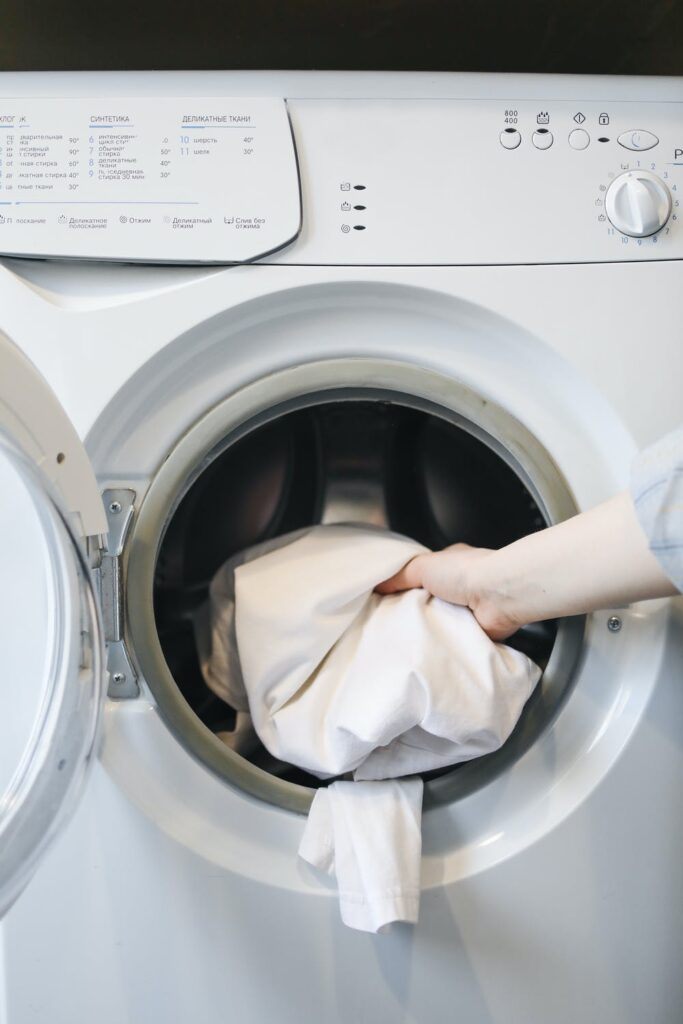
ingredients to avoid in laundry detergent:
No matter what kind of laundry detergent you get, there are a select few ingredients you should always stay away from. If you see these in a detergent – it’s a little red flag!
Here’s a list of ingredients you should avoid.
- sodium lauryl sulfate and sodium laureth sulfate: These can inflame skin, eyes and lungs, damaging internal organs. They’re toxic in the environment as well.
- phosphates: When these enter waterways they cause eutrophication, mineral poisoning that causes high die-off of marine animals.
- formaldehyde: This can increase your risk of cancer, and the EPA calls it a class B1 probable carcinogen that causes acute toxicity when it comes in contact with skin.
- dyes: These don’t add any cleaning power and are often a culprit of allergies and rashes – many are proven carcinogens and almost all are endocrine disruptors too.
- chlorine bleach: A lung and skin irritant that can cause blindness, burning of the eyes, respiratory failure and fluid in the lungs.
- optical brighteners/ uv brighteners: These are eye, skin and lung irritants that are toxic to aquatic life, may spontaneously combust, and cannot be in the presence of static electricity (such as that from the clothes dryer).
- fragrance: Artificial fragrances can cause allergic reactions, chemical sensitivities, and even rashes.
- ammonium sulfate: This is a laundry additive is so toxic the requirements for use are to never allow the chemical or its empty containers to reach drains or waterways, all while being classified as a category 3 oral, respiratory and skin toxin.
- dioxane: Its liquid and fumes can spontaneously combust, it’s a known carcinogen, and it causes skin, eye and lung inflammation.
- nonylphenol ethoxylate: Leads to extreme aquatic toxicity. Prolonged exposure may cause cancer and reproductive disorders, in addition to damaging the eyes and skin.
- dichlorobenzene: This has an immediate, highly toxic effect on aquatic life that can continue poisoning waterways for years down the line. Can also irritate the nose and throat causing coughing and wheezing, along with headaches, dizziness and even vomiting.
- benzyl acetate: When inhaled or spilled on the skin, it’s harmful and attacks the nervous system as well as the kidneys.
- ammonium quaternary sanitizers: This ‘cleaning additive’ is known to be corrosive and can cause eye, lung and skin damage.
anything I should look for?
There’s a lot of green washing in packaging and labeling, but your best bet is to look for products that are labeled organic or biobased. These products will most likely be the most trustworthy and ensure you’re getting a safe product for both yourself and the planet.

beware of soap!
Lots of eco-friendly “detergents” on the market are actually just soap – and they can do more harm than good in the long run. It’s important to know the difference between real laundry detergent and just laundry soap.
The main difference between detergents and soaps is that detergents don’t use fats and oils, which is very important if you don’t want to ruin your clothes. Soap buildup will occur in your clothing which attracts and traps dirt – the exact opposite of what you want.
This is a big reason why you shouldn’t use homemade laundry detergent, or any eco laundry soap masquerading as “detergent.”
laundry detergent that’s gzw approved:
So, now you know that you’re looking for a safe, eco-friendly, non-toxic laundry detergent.
If your head is spinning from all this information – don’t fear. I’ve rounded up a list laundry detergents that get the Going Zero Waste seal of approval. All these brands are actual detergents that are tough on stains, but gentle on the planet.
I’ve gone ahead and highlighted some of my favorite features of each brand, but it isn’t an exhaustive list. Be sure to check out their websites for more information.
1. dropps:
- Laundry pods
- EPA safer choice certified
- Plant-based ingredients
- Cruelty-free
- HE safe
- Carbon neutral shipping
/ DROPPS /
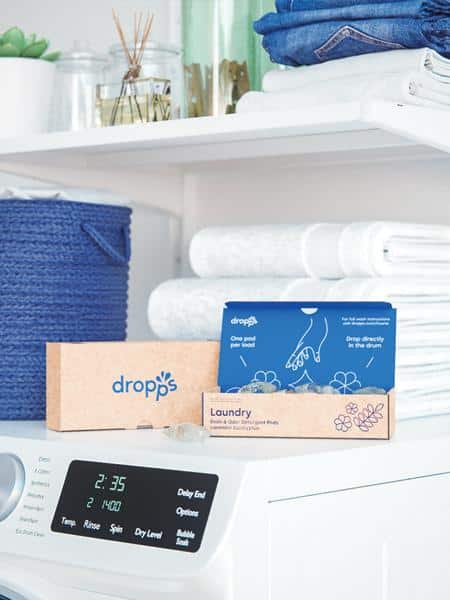
2. pur home:
- Liquid detergent
- Black and woman owned business
- Plant-based ingredients
- Leaping Bunny Certified
- HE safe
- Zero waste refill program
/ PUR HOME /
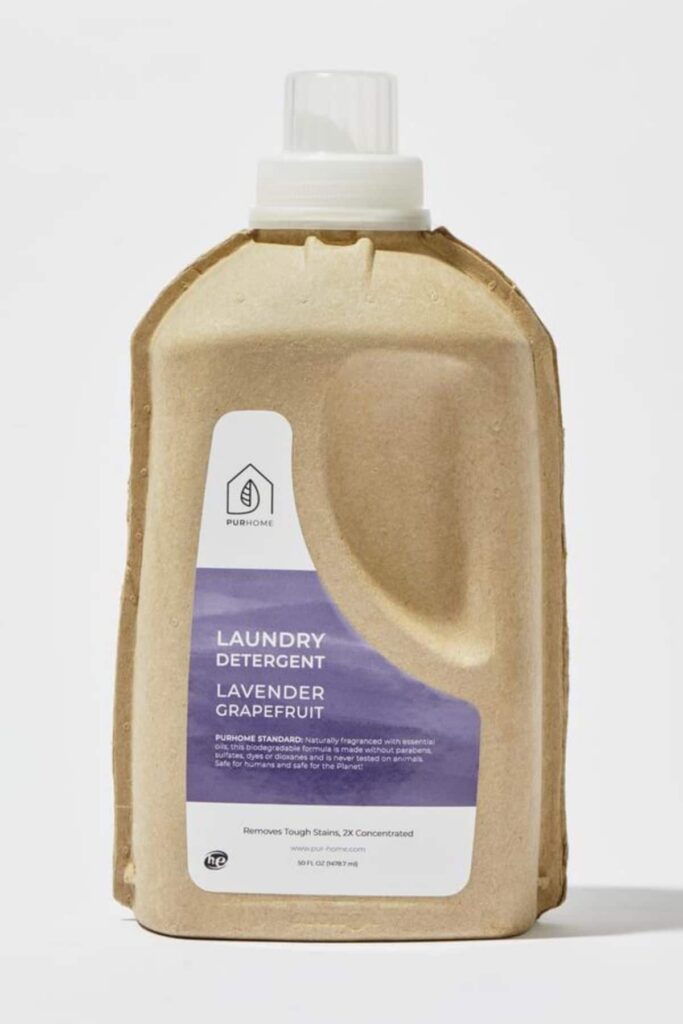
3. cleancult:
- Liquid detergent
- Plant-based ingredients
- Leaping bunny certified
- HE safe
- Carbon neutral shipping
- Refill program
/ CLEANCULT /
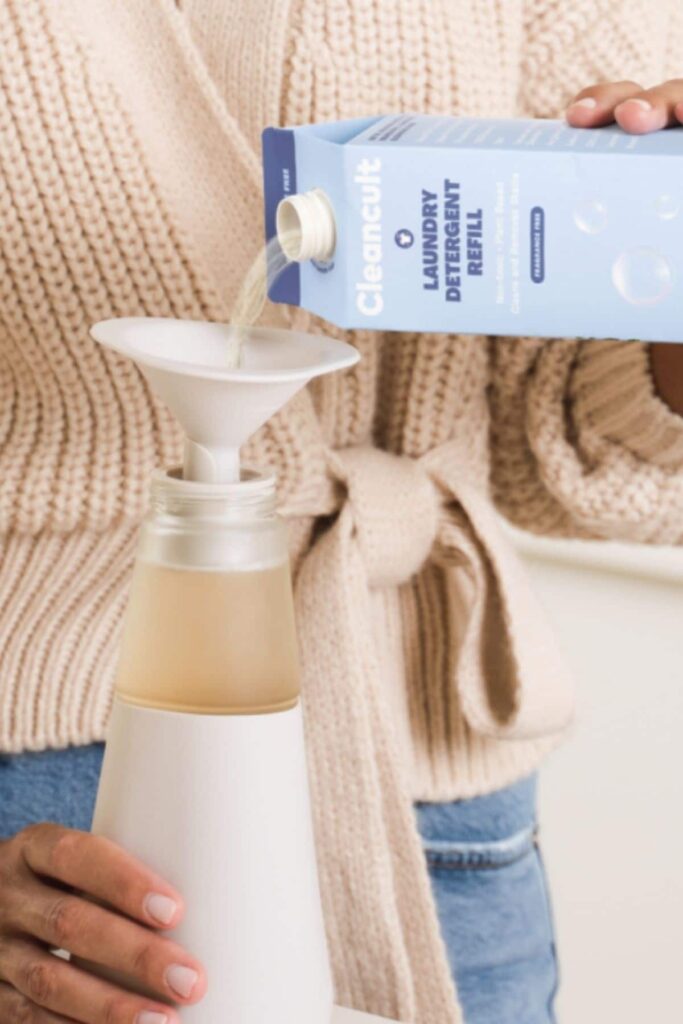
4. bluebland:
- Laundry tablets
- Plant-based ingredients
- Leaping bunny certified
- HE safe
- USDA BioPreferred
- Plastic free refill program
/ BLUELAND /
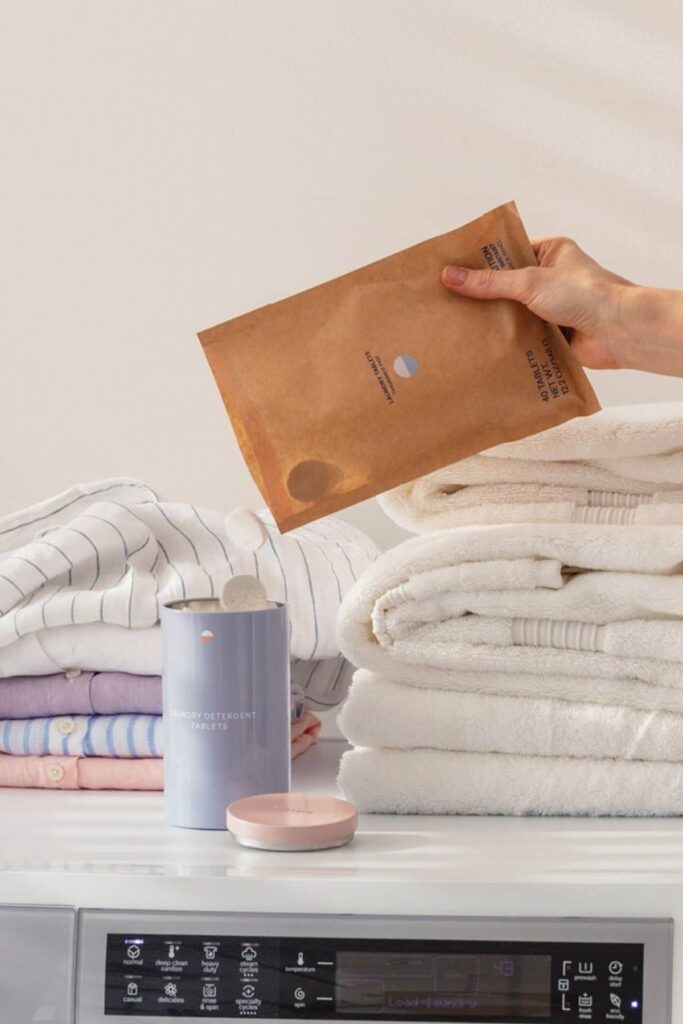
5. tru earth:
- Laundry strips
- Certified hypoallergenic
- Cruelty free
- HE safe
- Biodegradable
- Plastic free
/ TRU EARTH /
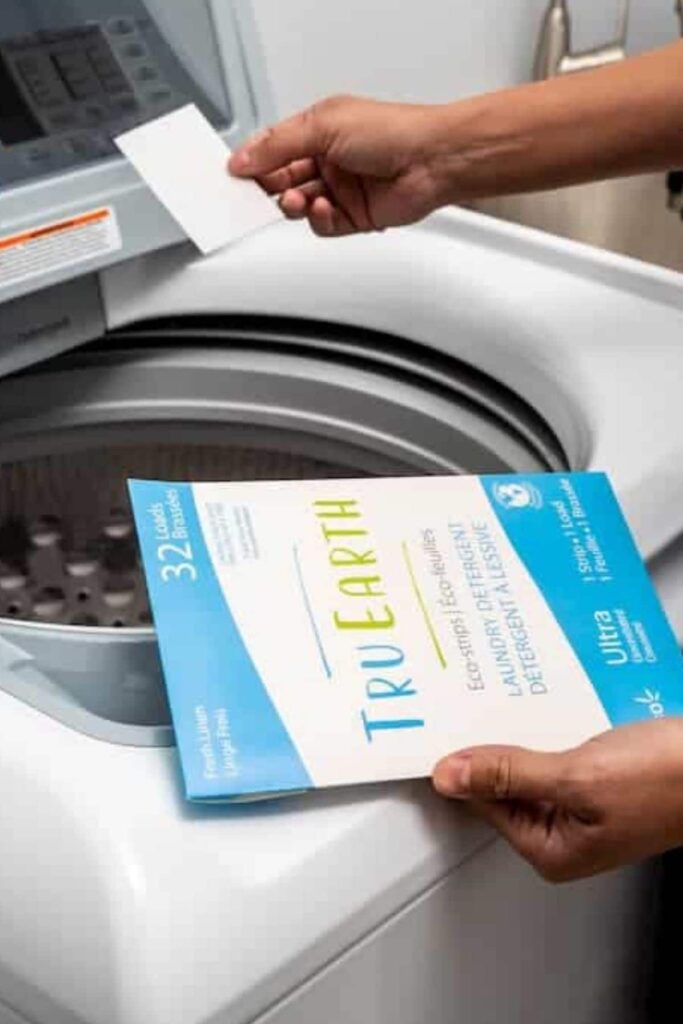
6. biokleen:
- Laundry powder & liquid detergent
- Plant-based ingredients
- Cruelty free
- HE safe
- Renewable energy offsets purchased for production
- 100% recycled cardboard box
/ BIOKLEEN /
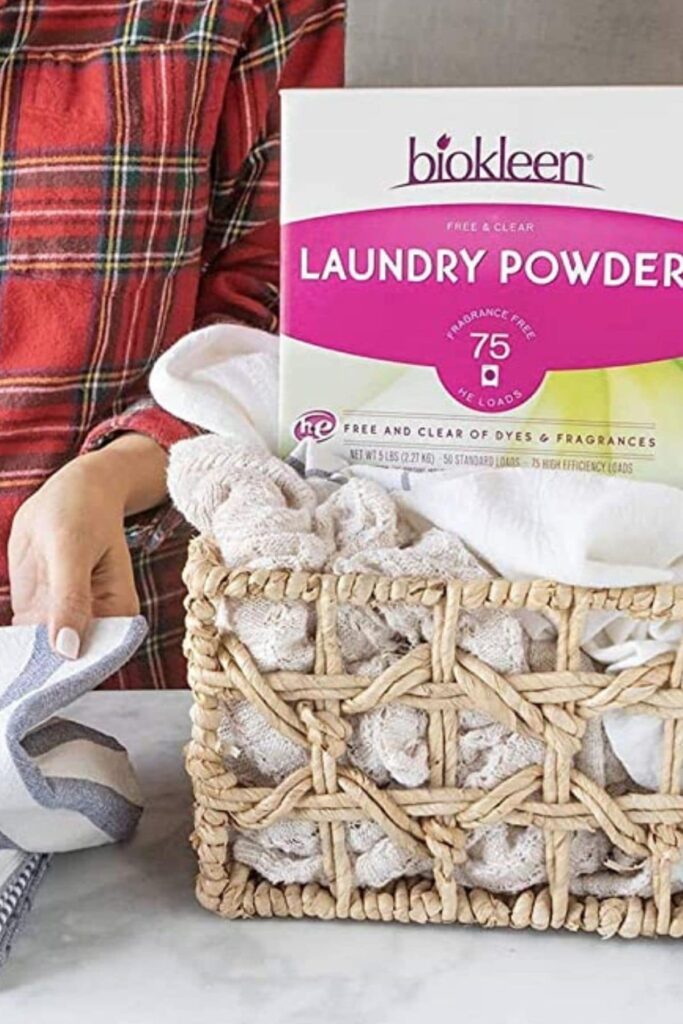
7. grove collaborative:
- Liquid detergent
- Plant-based ingredients
- Cruelty free
- Certified B Corporation
- Refill program available
- Carbon offsets for each shipment
- Plastic neutral
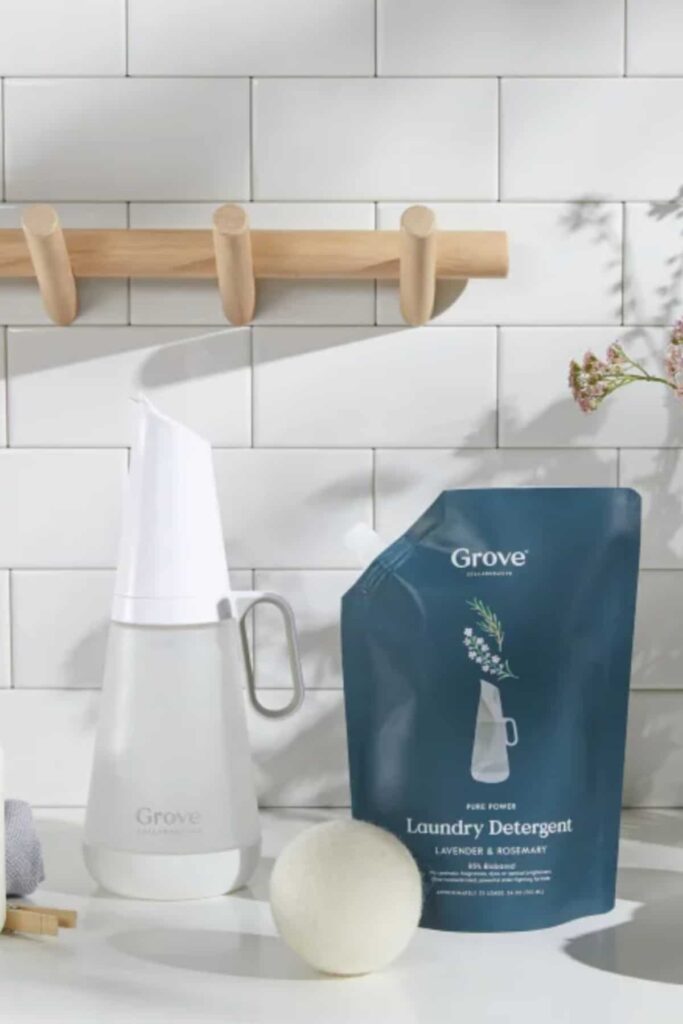
8. seventh generation:
- Liquid detergent
- Plant-based ingrdients
- Leaping bunny certified
- Certified B Corporation
- USDA certified biobased product 96%
- Post-consumer recycled plastic
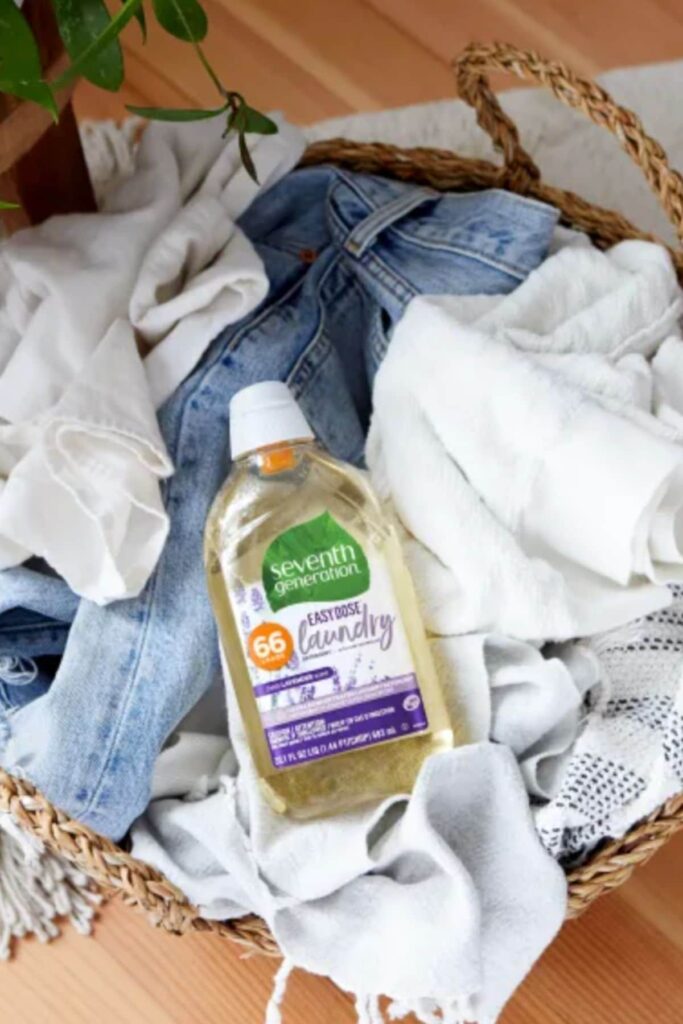
9. ecos:
- Liquid detergent, strips and pods
- EPA safer choice certified
- Leaping bunny certified
- HE safe
- Facilities are run on 100% renewable energy
- TRUE Platinum Zero Waste certified
/ ECOS /
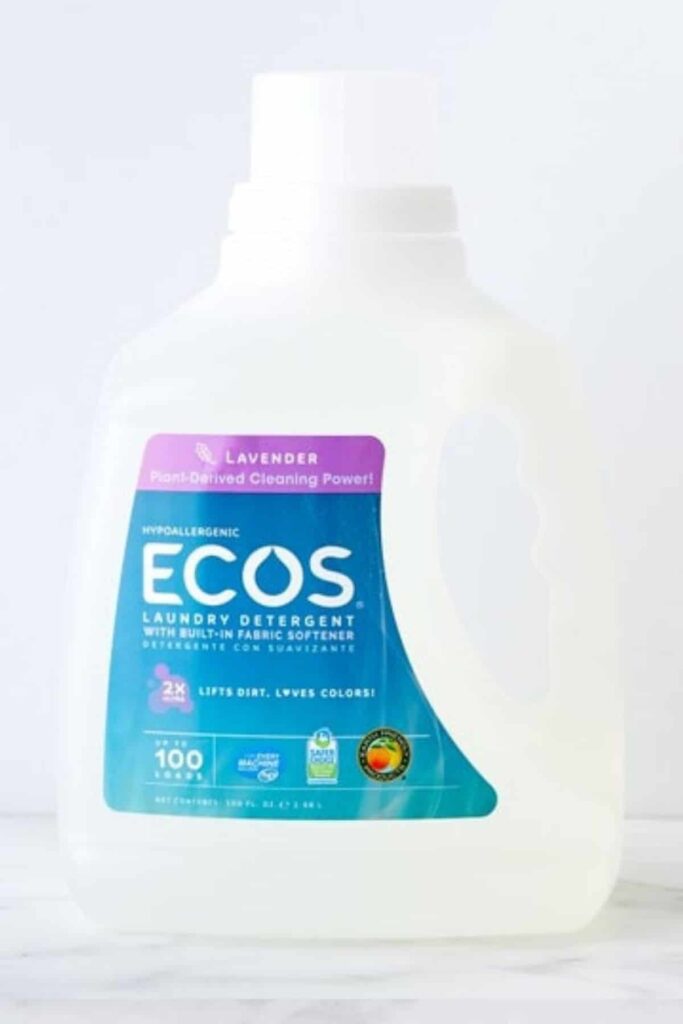
10. ecover:
- Liquid detergent
- Plant-based ingredients
- Cruelty free
- Certified B Corporation
- Bottles made from made from sugarcane and recycled plastic
- Hypoallergenic
/ ECOVER /
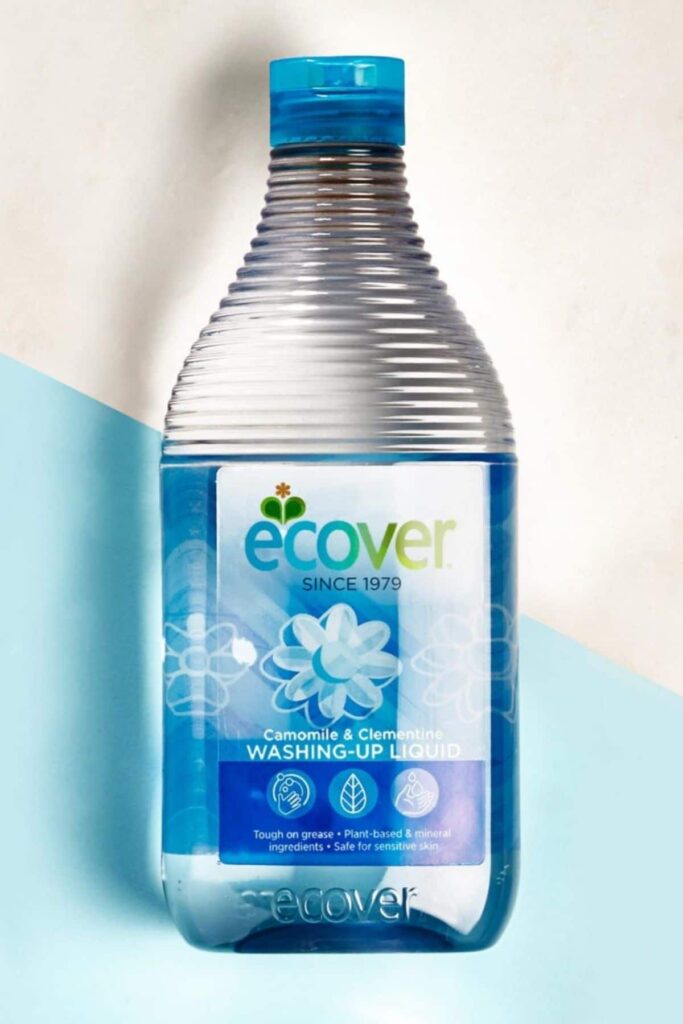
Have you tried any of these eco friendly laundry detergents before?
The post Laundry Detergent: The 10 BEST All-Natural, and Eco Friendly Options appeared first on Going Zero Waste.
